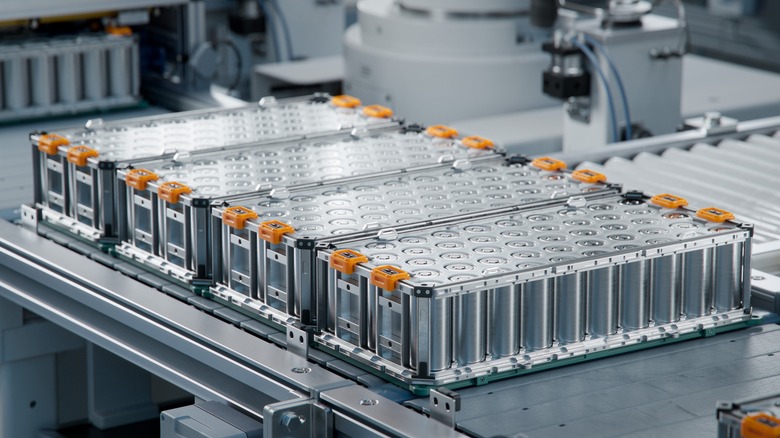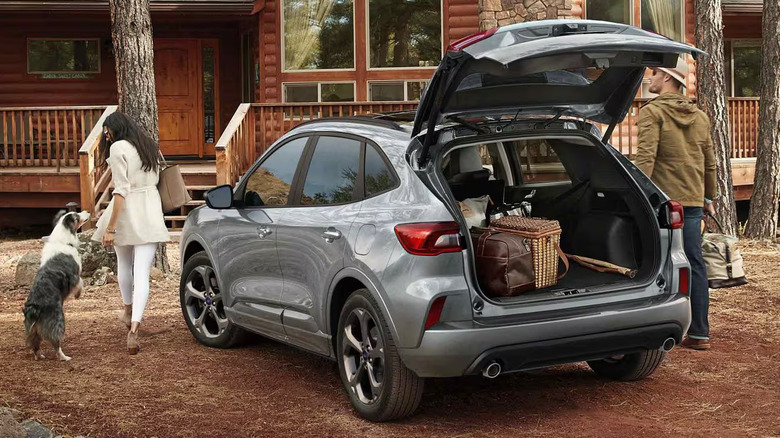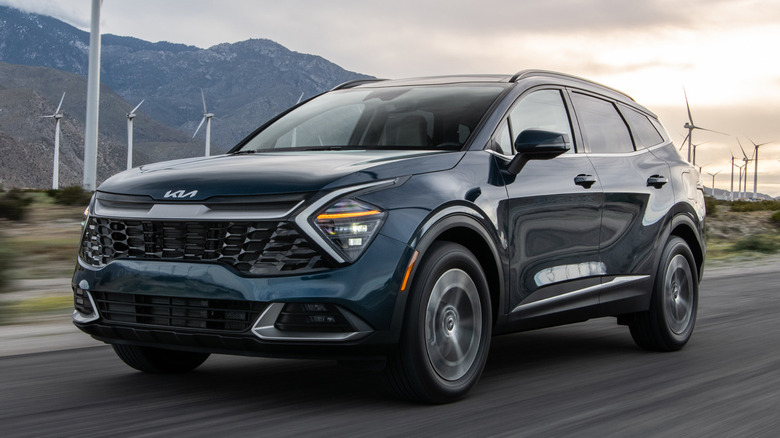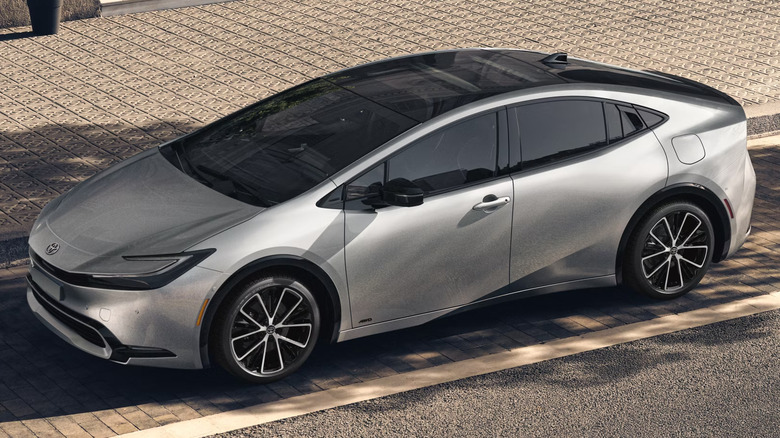How Long Do The Batteries In Hybrid Cars Last?
Hybrid vehicles occupy a space somewhere in between fully electric models and the more commonplace gas-powered varieties we often see in our day-to-day. They offer many of the benefits of an EV (lower emissions compared to gas, generally quieter, etc) at a lower MSRP, with lower repair costs, and no fear of running out of power partway through a trip.
All this being said, the battery is still an essential part of a hybrid. One that can be fairly expensive to repair or replace — and risky to tend to on your own. In fact, AutoZone estimates that most hybrid battery replacements will set owners back well over $1,000 (or even thousands, plural). Like $1,000+ just for the battery itself, with labor and potential additional parts adding $500 or more to the bill. Actual prices will vary based on the vehicle, manufacturer, and so on but a replacement isn't going to be cheap.
Fortunately, chances are high that you won't have to switch the battery out very often. Whether you go by the words of a manufacturer, the dealership, or the fine print you can generally expect to go several years with what's already under the hood. Possibly even longer than that if you take good care of your vehicle.
What the automakers say
Manufacturer life expectancy for batteries in hybrid vehicles come with a lot of caveats. Much like how there are several tricks to extend or preserve battery longevity in modern electronics, there are ways for you to keep a hybrid's battery going for longer. Or cause it to peter out earlier than expected. It's why companies always give a range rather than a specific number.
BMW states that its batteries should last you between 10 and 20 years. Ford estimates battery life in miles rather than years, claiming between 100,000 to 200,000 miles (which is still approximately 10 to 20 years based on average driving). Honda batteries come in a bit behind, with an average expectation of around six to 10 years. Estimates from Hyundai, KIA, and Mazda all sit toward the middle, claiming either 15 years or 150,000 miles. Toyota expects between eight years (or 100,000 miles) and 10 years (or 150,000 miles), while Volvo only predicts between four to six years of battery life.
Again, these expectations can change based on whether or not you treat your hybrid right. Basically, anything that speeds up the inevitable degradation of the batteries in your smartphone can do the same to the vehicle's power source. So, try to avoid extreme temperatures (in either direction) when possible, don't push the engine too hard for too long too often, and don't charge the battery to full all the time if you can help it.
Checking the warranties
You can arguably get a better idea of how long a company really expects its hybrid batteries to last by looking at the warranty. In many cases this comes to either eight years or 100,000 miles (whichever comes first) and covers issues like the voltage dropping off, the battery refusing to charge, and so on. This is widely considered to be a regulation put forth by the U.S. federal government, but Consumer Affairs notes that it has not been able to find any direct evidence of this. So, it's more likely that it's a number most manufacturers ended up settling on so as not to be nudged out by the competition.
As for actual numbers, Volvo offers the least amount of time with a four year or 50,000 miles manufacturer warranty. BMW offers eight years or 80,000 miles while Ford, Honda, and Mazda do the expected eight years or 100,000 miles. Hyundai and KIA go a bit further with 10 years or 100,000 miles. Toyota mixes it up depending on the year, with 2019 and earlier models going by the typical eight years or 100,000 miles but 2020 and later versions being covered for 10 years or 150,000 miles.
The thing is, just like with other vehicle components you can never be certain just how long a hybrid's battery will hold up. It may give out before the warranty ends or obnoxiously shut down a little while after. In some cases, it may even last beyond 300,000 to 400,000 miles as some Prius drivers have reported.
Looking to the future
When it comes to knowing what to expect from hybrid batteries as the years march ceaselessly onward, well, that's about as certain as whether or not a current battery will last twice as long as its advertised lifespan. Which is to say there are a lot of factors that could affect where current research is headed.
Extending battery life seems to be less of a concern for future hybrids and EVs than overall power and charge times. Though that doesn't necessarily mean there won't be advances in battery life expectancy in the future. Engineering.com speculates that today's more common Lithium-ion batteries could end up competing with Sodium-ion alternatives being refined by major battery manufacturers — providing a potentially cheaper and more environmentally friendly option.
Toyota itself has also been trying to refine solid-state batteries, which it expects to start rolling out in 2027 or 2028 and would make the technology more competitive (lifespan-wise) with current models while also promising much faster charge times. Refined use of liquid electrolytes (common in many battery-powered EVs) to boost performance, recharge time, and production costs even more by 2026.



